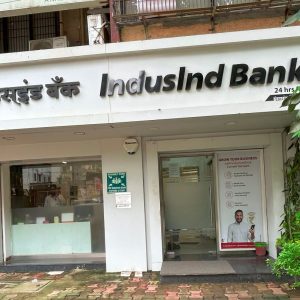Royal Bank of Scotland Group reported an operating loss of GBP1.525 billion in the third quarter of 2009, compared with GBP3.533 billion in the second quarter. Adjusting for movements in the fair value of own debt, pre-impairment operating profit improved to GBP2.237 billion, compared with GBP2.09 billion in the previous quarter. Global Banking & Markets revenues, have returned to more normalised levels from the strong conditions seen in the first and to a lesser extent, second quarters.
RBS reported healthy resluts for the UK corporate and GTS, but profitability in the UK, Ireland and US retail divisions remains subdued. The non-core division is now operational and is thus far meeting its run-off forecasts. The non-core operating loss decreased to GBP2.718 billion from GBP4.975 billion in the second quarter.
Group net interest margin beat forecasts at 1.75%, compared to 1.7% in the second quarter of 2009 and 2.05% in the third quarter of 2008. All divisions made good progress in improving asset margins to reflect the increased cost of funding, risk and additional capital requirements, and there has been some improvement in wholesale funding markets.
Funding and liquidity positions continued to improve, and the loan:deposit ratio, gross of provisions, declined to 142.3%, compared with 144.5% at the end of the previous quarter. RBS said that reliance on central bank funding is now down 69% from its peak, reflecting the marked improvement in short term money markets.
Net tangible equity per share increased to 59.4p at 30 September 2009, from 58p at 30 June, with positive movements in available for sale reserves and currency translation outweighing the attributable loss of GBP1.8 billion.
Stephen Hester, CEO of the group, said: “The release of our third quarter results today provides a timely reminder of why we are confident that we can restore RBS to standalone strength whilst serving customers well. Along the way we must also restore strong profitability and sustain a successful commercial spirit at RBS, without which value for all shareholders and a profitable exit for the UK taxpayer is not possible.”
However, less favorable trading battered investment banking profits and the bank cautioned bad loans were expected to remain at elevated levels for the next few quarters.






